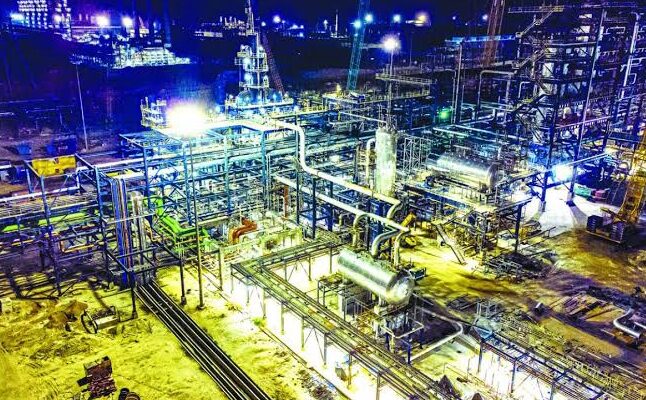Nigeria’s new president, Bola Ahmed Tinubu, has scrapped the fuel subsidy that cost the government 4.3 trillion naira ($9.3 billion) in 2022 and 3.36 trillion naira ($7.2 billion) for the first half of 2023. He said the funds would be spent on public infrastructure and to improve the lives of people.
But what does this mean for Nigeria’s refineries, which have been operating at a fraction of their capacity for years? Nigeria, Africa’s largest oil producer and the 13th largest in the world imports petroleum products, which are then sold at a government-set price.
Nigeria has five operational refineries, with a combined capacity of 445,000 barrels per day. Four are owned by the Nigerian National Petroleum Corporation (NNPC), while the fifth is owned and operated by Niger Delta Petroleum Resources (NDPR). However, most of these refineries are in a state of disrepair and have been undergoing perennial repairs and maintenance.
According to the Department of Petroleum Resources (DPR), Nigeria’s refineries processed only 21.6% of their combined capacity in 2022. The NNPC refineries recorded a cumulative loss of 167.4 billion naira ($359.6 million) in 2022, while the NDPR refinery made a profit of 2.2 billion naira ($4.7 million).
Dr. Bala Zaka, an energy analyst and lecturer at the Federal University of Technology Minna, said the subsidy removal was long overdue and could be beneficial for Nigeria’s refineries if properly implemented.
“The subsidy removal will create a level playing field for all players in the downstream sector. It will also encourage competition and efficiency among the existing refineries and pave way for new ones to emerge,” he told newsmen.
He said the government should use part of the money saved from the subsidy removal to rehabilitate and modernize its refineries, as well as provide incentives for private investors to build modular refineries.
“Modular refineries are smaller and cheaper than conventional refineries. They can be built within a short time and can be located closer to the source of crude oil. They can also produce different grades of petroleum products to meet local demand,” he said.
He added that Nigeria could also leverage its abundant gas resources to produce liquefied petroleum gas (LPG), which is cleaner and cheaper than petrol and diesel. “Gas is the future of energy. Nigeria has more gas than oil, but we are not utilizing it effectively. We can use gas to power our vehicles, industries and homes. This will reduce our reliance on imported fuel and also reduce greenhouse gas emissions,” he said.
However, not everyone is optimistic about the prospects of Nigeria’s refineries after the subsidy removal. Mr. Peter Esele, a former president of the Trade Union Congress (TUC), said the government had failed to deliver on its previous promises to revamp its refineries.
“The government has been saying that it will fix its refineries for years, but nothing has happened. The refineries are still moribund and inefficient. The subsidy removal will only increase the hardship of Nigerians who are already suffering from high cost of living,” he told Nigerian Infofinder.
He urged Nigerians to resist the policy and demand accountability from the government.”Nigerians should not accept this policy without questioning it. They should demand transparency and accountability from the government on how the money saved from the subsidy removal will be spent. They should also demand that the government fixes its refineries and ensures regular supply of petroleum products at affordable prices,” he said.
The fuel subsidy removal is a bold and controversial move by the new administration, which hopes to free up funds for public investment and development. However, it also poses significant challenges and risks for Nigeria’s economy and society, especially in the short term. The fate of Nigeria refineries remains uncertain. Whether they will benefit or suffer from this policy depends on how the government and the private sector will respond to it. Nigerians may have to brace themselves as higher fuel prices and other fallouts from the subsidy removal continue To make their lives difficult.
– Reuben Iko-Ojo Esther
Prince Abubakar Audu University, Anyigba, Kogi state




